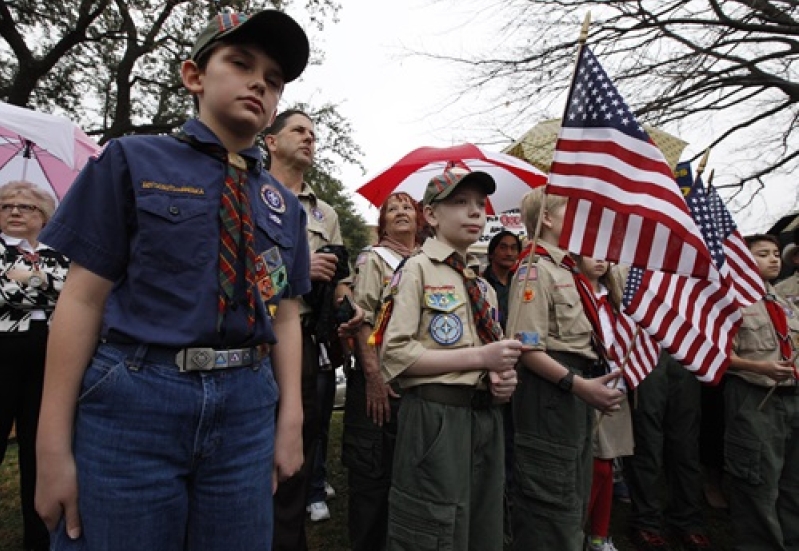
The Southern Baptist Convention recently passed a resolution opposing the decision to include openly gay youth in Boy Scout troops. The Scouts have argued that the change in policy is a way to show compassion to marginalized youth, much like a church might do for members of its congregation; however, many Christians have withdrawn their support of the organization because they believe that the Scouts’ new membership rules endorse homosexual practice.
The Boy Scout Oath reads: “On my honor, I will do my best to do my duty to God and my country and to obey the Scout Law; to help other people at all times; to keep myself physically strong, mentally awake and morally straight.” The Boy Scouts of America has historically been supported by primarily faith-based organizations with conservative moral values. The organization’s oath promotes loyalty to God, service to others, and living a righteous and purposeful life – principles that coincide with the Christian faith. Any endorsement of homosexual practice, however, does not align with God’s word and ought not to be supported by His people.
1 Corinthians 6:9-10 says, “Or do you not know that the unrighteous will not inherit the kingdom of God? Do not be deceived: neither the sexually immoral, nor idolaters, nor adulterers, nor men who practice homosexuality, nor thieves, nor the greedy, nor drunkards, nor revilers, nor swindlers will inherit the kingdom of God” (English Standard Version). The passage clearly defines many sins that separate us from God, things that violate His good commands. Because God created everything and has the authority to define good and evil, one cannot “do his duty to God” or live a “morally straight” life if they are in rebellion to Him.
We are all guilty of this treason; not one of us has honored our duty to God (see Romans 3:23).
The Good News is in the verse that follows – “And such were some of you. But you were washed, you were sanctified, you were justified in the name of the Lord Jesus Christ and by the Spirit of our God” (1 Corinthians 6:11). Despite our many sins, Jesus Christ lovingly paved the way to forgiveness for all who would trust in His saving death and resurrection. He died to satisfy the wrath of God for unrighteousness, and lavishes grace on those who would welcome Him as their Savior and Lord (see Ephesians 2:1-9 and Romans 10:9-11).
The grace of God does not enable, however – when we come to saving faith in Christ, the Holy Spirit helps us to see our sin and our need for repentance. When this happens, we ought to distinguish sin from temptation - practicing homosexuality from same-sex attraction. Just because a person might have a propensity or desire to drink an abundance of alcohol does not mean that he must become an alcoholic. He has a choice to make – albeit a difficult one – and the heart of a believer is softened to love God’s ways. In that same way, those who struggle with same-sex attraction are able to resist the temptation to give into homosexual practice. Many Christians have struggled with these desires and have overcome them by the help of the Holy Spirit, keeping their eyes fixed on Christ.
The Boy Scouts of America shepherds millions of young boys who are growing in their identity, and the Southern Baptist Convention has taken a stand to protect the impressionable minds of children from heeding cultural opinion instead of God’s word.






